Abstract
In 100 patients with lung cancer we have found no significant abnormality in overall HLA antigen frequency when compared to a control sample of 151 random health individuals from the same region, though there was a high relative risk of being HLA-BW22-positive and having lung cancer. There was an increased frequency of HLA-B5 in small-(oat-)cell anaplastic carcinomas (P less than 0.05); HLA-B15 in anaplastic tumours (P less than 0.05); HLA-B40 in Stage III patients (P = 0.05) and a decreased frequency of HLA-B12 in adenocarcinomas (P less than 0.05). In 86 patients followed up for 2 1/2-5 3/4 years after surgery we have been unable to confirm the significant association of HLA-AW19 and/or HLA-B5 with good prognosis as reported by others. The most striking observation was that the frequency of HLA-BW22 was significantly higher in patients alive at least 2 1/2 years after surgery when compared to the control groups (P less than 0.05) and 83% of patients HLA-BW22-positive are alive compared to only 52.5% of lung cancer patients lacking this antigen. However, all the P values become nonsignificant when multiplied by the number of antigens studied, and these observations need further investigation in a large, prospective study.
Full text
PDF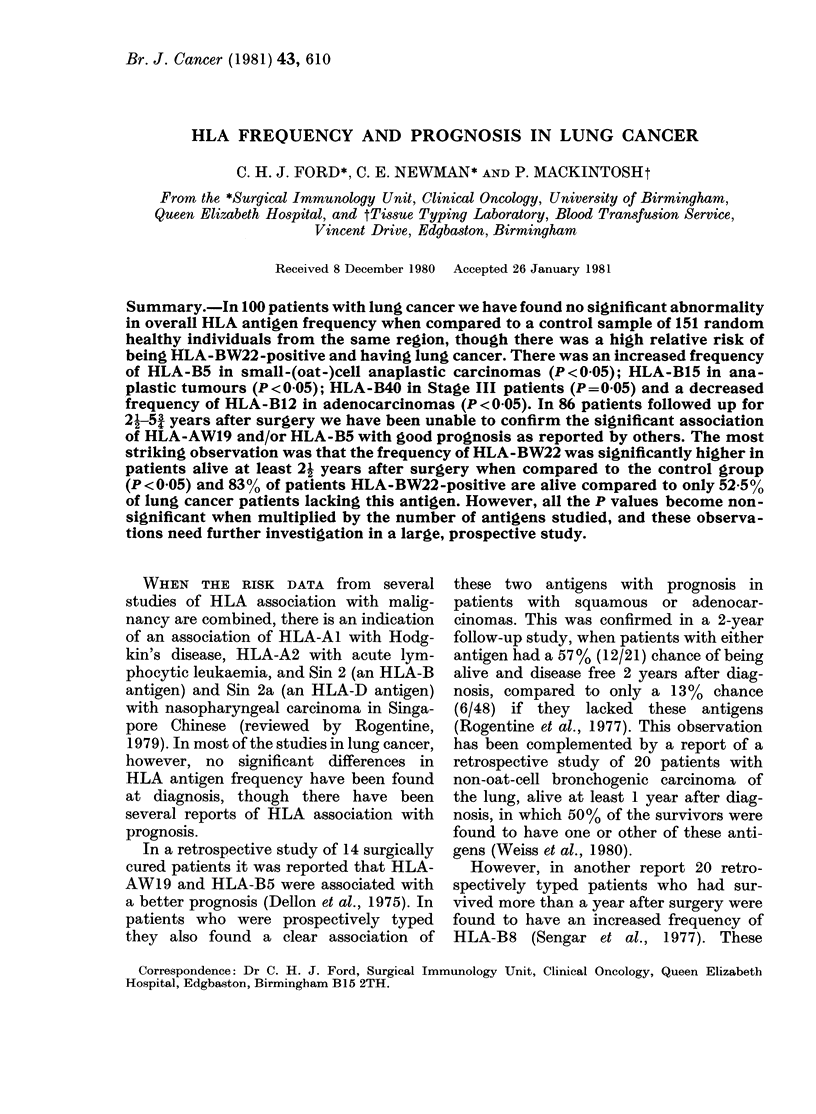
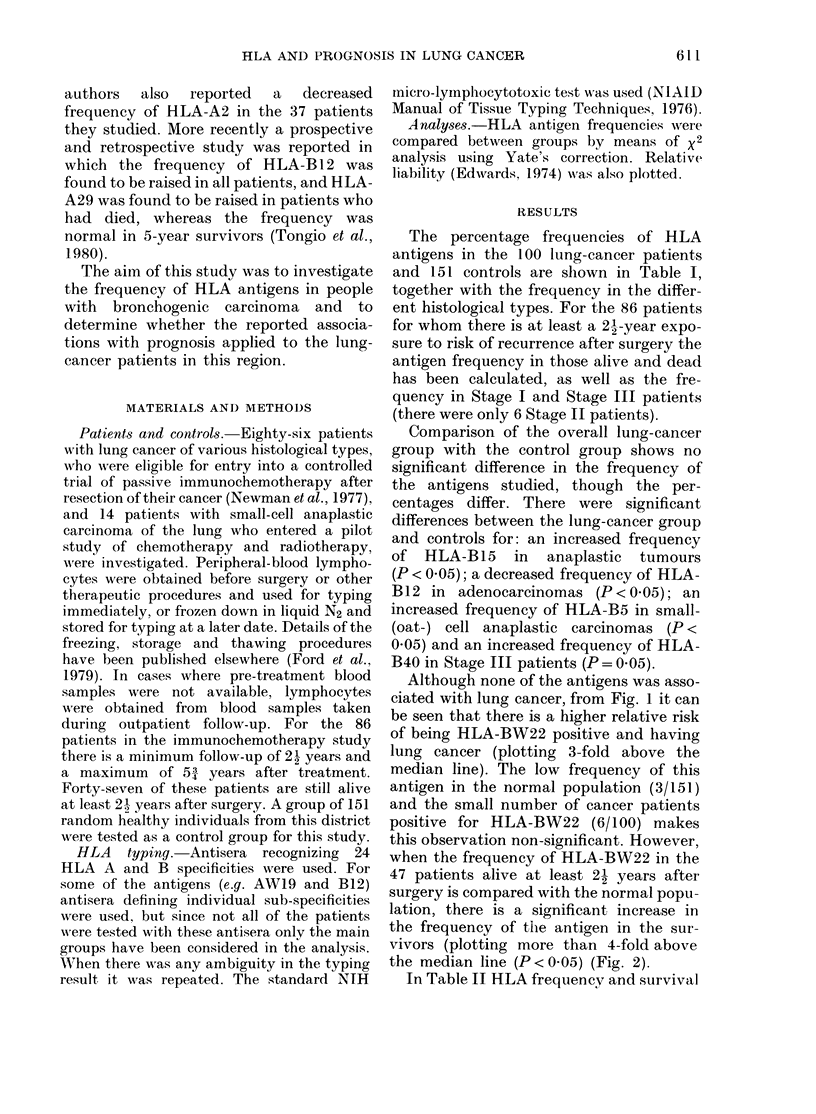
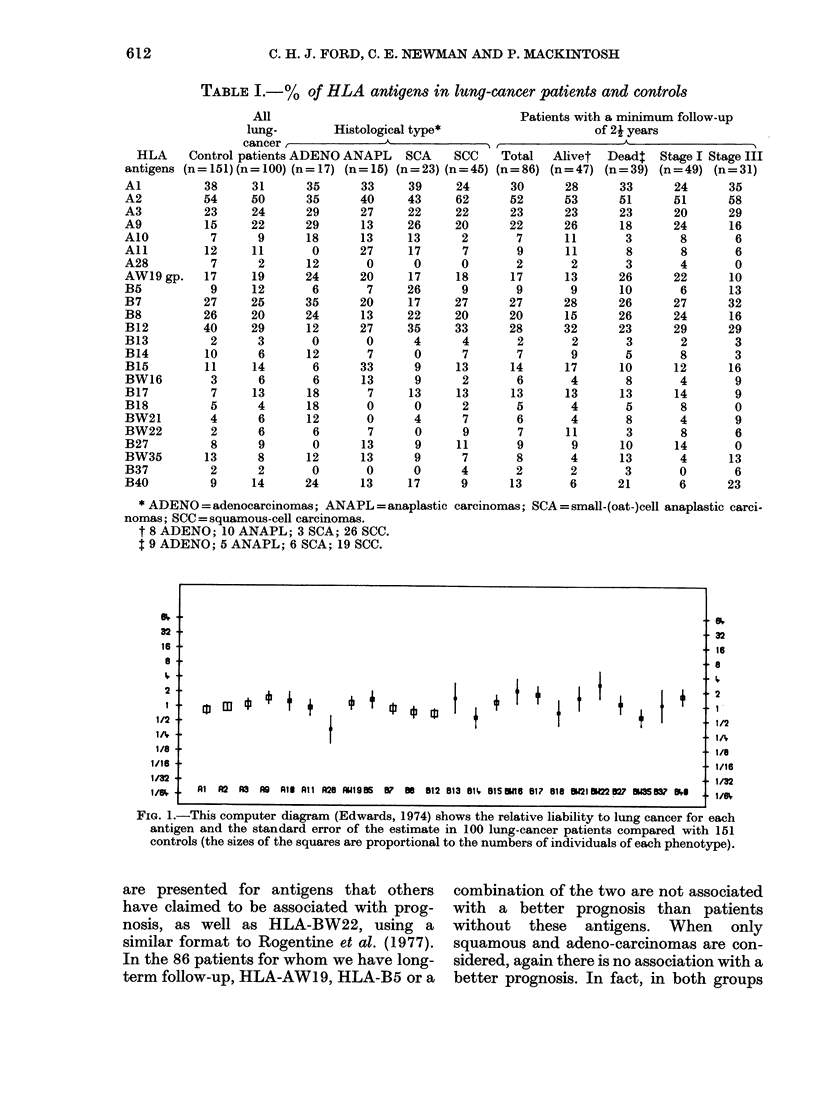
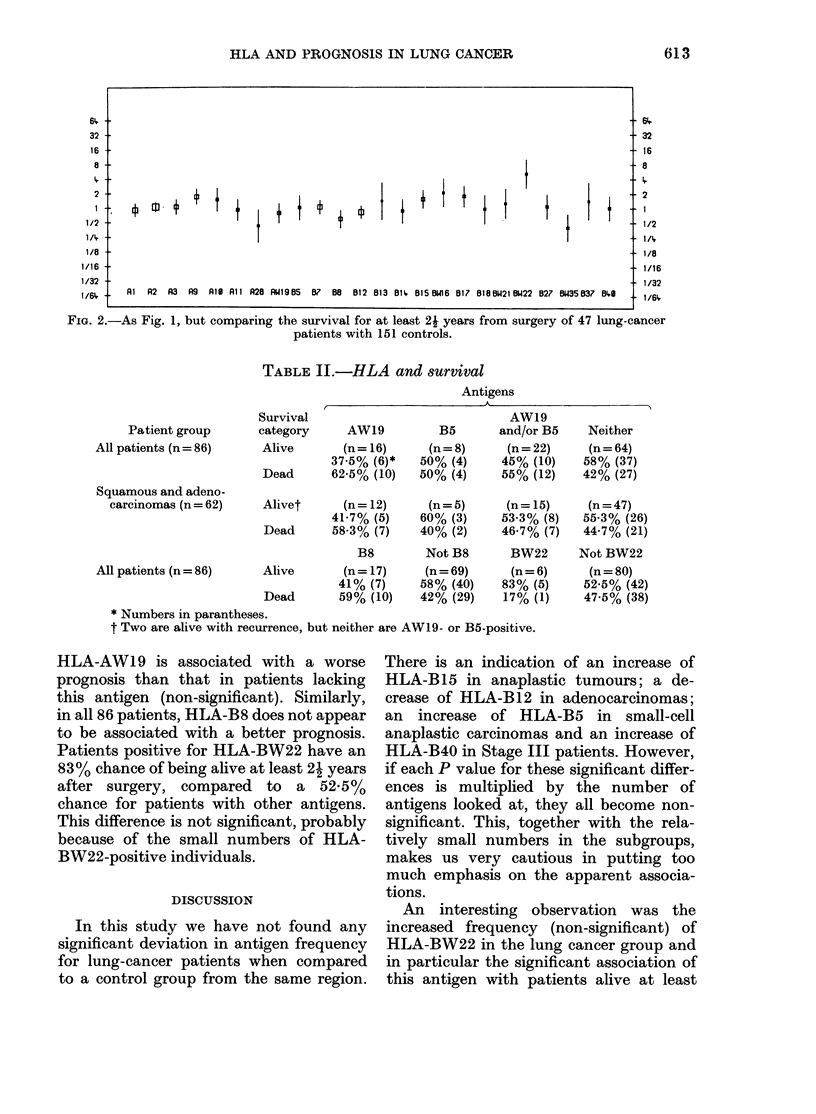
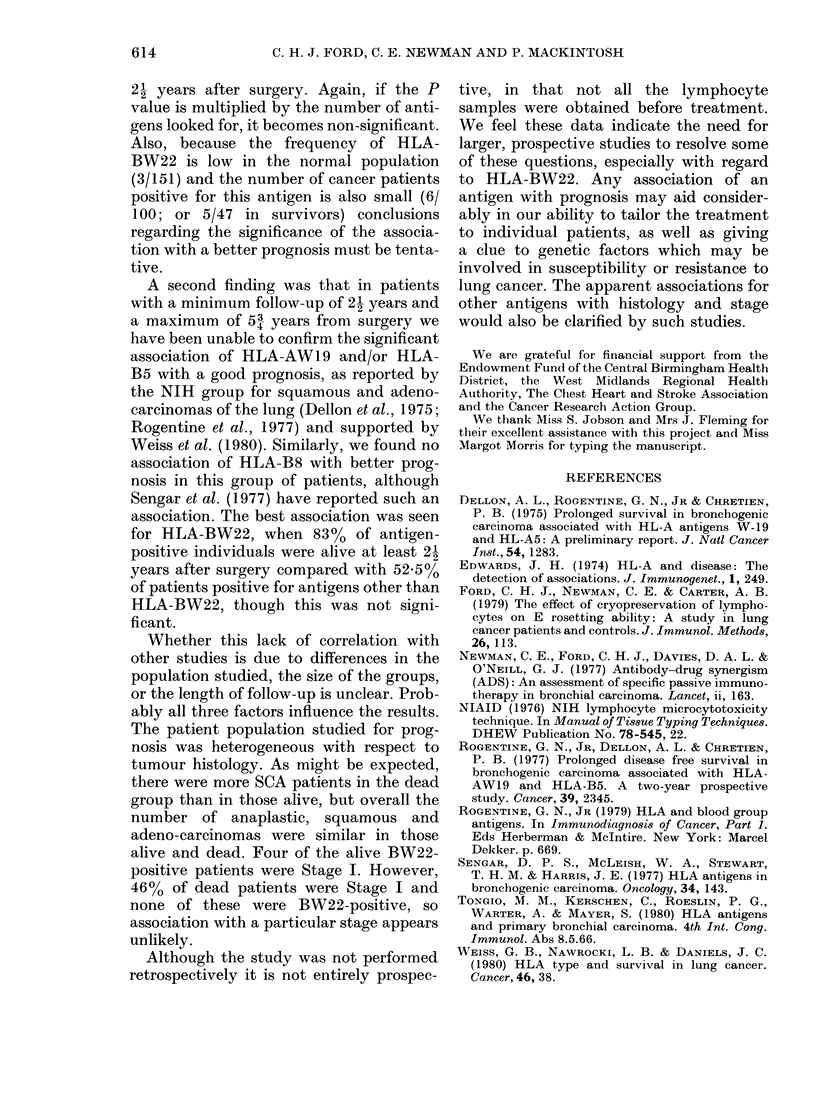
Selected References
These references are in PubMed. This may not be the complete list of references from this article.
- Dellon A. L., Rogentine G. N., Jr, chretien P. B. Prolonged survival in bronchogenic carcinoma associated with HL-A antigens W-19 and HL-A5: a preliminary report. J Natl Cancer Inst. 1975 Jun;54(6):1283–1286. doi: 10.1093/jnci/54.6.1283. [DOI] [PubMed] [Google Scholar]
- Ford C. H., Newman C. E., Carter A. B. The effect of cryopreservation of lymphocytes on E rosetting ability: a study in lung cancer patients and controls. J Immunol Methods. 1979;26(2):113–124. doi: 10.1016/0022-1759(79)90075-9. [DOI] [PubMed] [Google Scholar]
- Newman C. E., Ford C. H. Antibody-drug synergism: An assessment of specific passive immunotherapy in bronchial carcinoma. Lancet. 1977 Jul 23;2(8030):163–166. doi: 10.1016/s0140-6736(77)90180-5. [DOI] [PubMed] [Google Scholar]
- Rogentine C. N., Jr, Dellon A. L., Chretien P. B. Prolonged disease-free survival in bronchogenic carcinoma associated with HLA-Aw19 and HLA-B5. A two-year prospective study. Cancer. 1977 Jun;39(6):2345–2347. doi: 10.1002/1097-0142(197706)39:6<2345::aid-cncr2820390605>3.0.co;2-w. [DOI] [PubMed] [Google Scholar]
- Sengar D. P., McLeish W. A., Stewart T. H., Harris J. E. HLA antigens in bronchogenic carcinoma. Oncology. 1977;34(4):143–145. doi: 10.1159/000225208. [DOI] [PubMed] [Google Scholar]
- Weiss G. B., Nawrocki L. B., Daniels J. C. HLA type and survival in lung cancer. Cancer. 1980 Jul 1;46(1):38–40. doi: 10.1002/1097-0142(19800701)46:1<38::aid-cncr2820460108>3.0.co;2-v. [DOI] [PubMed] [Google Scholar]



